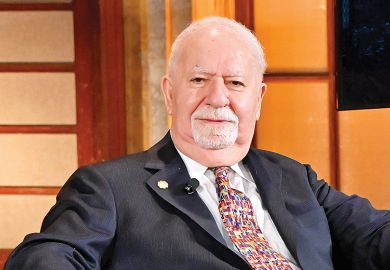A leading analyst of the emotional undercurrents of American culture has died.
Lauren Berlant was born in Philadelphia in 1957 and grew up in Penn Valley. They gained a first degree from Oberlin College in Ohio (1979) before going on to a master’s (1983) and then a PhD on the 19th-century novelist Nathaniel Hawthorne (1985) at Cornell University. In 1984, however, they joined the University of Chicago, where they would spend the rest of their career, eventually as George M. Pullman distinguished service professor in the department of English language and literature.
An initial monograph titled The Anatomy of National Fantasy: Hawthorne, Utopia, and Everyday Life (1991) formed the basis for what Professor Berlant called their “national sentimentality trilogy”, completed with The Queen of America Goes to College: Essays on Sex and Citizenship (1997) and The Female Complaint: The Unfinished Business of Sentimentality in American Culture (2004). Far more experimental is The Hundreds (co-authored with Kathleen Stewart, 2019), a series of reflections – each a hundred or a multiple of a hundred words long – on everyday topics from selfies and smoothies to an argument with a neighbour about a urinating dog.
Yet it was Cruel Optimism (2011) which established Professor Berlant as a central figure in the field of affect theory and in debates about the direction of American culture. It won the René Wallek Prize of the American Comparative Literature Association and was described in The New Yorker as “a meditation on our attachment to dreams that we know are destined to be dashed”. Much of the problem, the author once explained, is that many Americans remain emotionally invested in “ideologies of the good life that were made available for optimism in the post-war economic bubble”, but that are doomed to disappointment in today’s world.
“Lauren Berlant had always confounded the supposed dichotomy between the academy and activism by demonstrating the degree to which ideas matter to activists and artists,” said Deborah Nelson, the Helen B. and Frank L. Sulzberger professor in Chicago’s department of English language and literature, “and the importance of activist and artistic practice to the production of knowledge and to cultural change. It’s quite possible that the revolutionary and Academy Award-winning [1999] film Boys Don’t Cry, about trans teen Brandon Teena, would have never been made without Berlant’s influence on film-maker Kimberly Peirce when she was an undergraduate at the University of Chicago.”
Professor Berlant died of cancer on 28 June and is survived by their partner, Ian Horswill.
Register to continue
Why register?
- Registration is free and only takes a moment
- Once registered, you can read 3 articles a month
- Sign up for our newsletter
Subscribe
Or subscribe for unlimited access to:
- Unlimited access to news, views, insights & reviews
- Digital editions
- Digital access to THE’s university and college rankings analysis
Already registered or a current subscriber?








